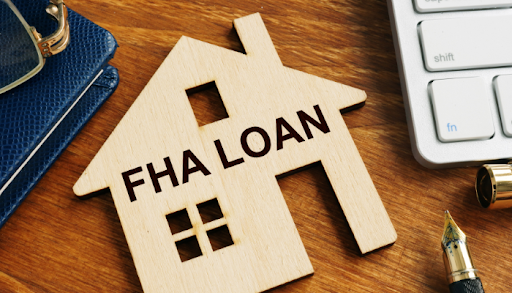Understanding Federally Backed Loans
Entering the world of homeownership can be complex, especially when deciphering various loan options. Federally backed loans, particularly FHA and VA loans, offer distinct advantages for specific borrowers. These loans are backed by the federal government, which provides a safety net for lenders and often leads to more favorable terms for borrowers. This article breaks down the essentials of FHA and VA loans, helping first-time buyers and others understand their unique features and requirements. Getting a Federally backed home loan starts with knowing Interest rates today mortgage.
FHA Loans: A Popular Choice for Many
The Federal Housing Administration (FHA) backs FHA loans, aiming to make homeownership accessible to more Americans, especially first-time buyers. These loans are known for their lower down payment requirements and more lenient credit score criteria compared to conventional loans. With an FHA loan, buyers can put down as little as 3.5% if their credit score is 580 or higher. For those with credit scores between 500 and 579, a 10% down payment is required, making it a viable option for those with less-than-perfect credit histories.
Key Features and Requirements of FHA Loans
Besides the lower down payment and flexible credit requirements, FHA loan requirements come with specific conditions. Borrowers must pay a Mortgage Insurance Premium (MIP), which includes an upfront fee and a monthly charge. This insurance protects lenders in case of default. FHA loans also have limits on how much you can borrow, varying by location. The property purchased must be appraised by an FHA-approved appraiser and meet certain safety and livability standards, ensuring that the home is a sound investment.
VA Loans: Tailored for Military Members
Veterans Affairs (VA) loans are exclusively for active-duty military members, veterans, and their spouses. One of the most significant benefits of a VA loan is the possibility of 0% down payment, making homeownership immediately accessible to those who have served in the military. Unlike FHA loans, VA loans do not require mortgage insurance, leading to lower monthly payments. This can result in significant savings over the loan’s life.
Eligibility and Benefits of VA Loans
To qualify for a VA loan, individuals must meet specific service requirements, which vary depending on when and how long they served. The VA does not set a minimum credit score, but lenders typically prefer borrowers with a credit score of 620 or above. VA loans also offer competitive interest rates and are more forgiving with debt-to-income ratios. Additionally, VA loans come with no prepayment penalties, allowing borrowers to pay off their loan early without extra fees.
Comparing FHA and VA Loans
While both FHA and VA loans offer paths to homeownership with potentially lower upfront costs, they cater to different audiences and have distinct advantages. FHA loans are more accessible to a broader range of borrowers, especially those with lower credit scores or smaller down payments. VA loans, however, offer unparalleled benefits for military service members, such as no down payment and no mortgage insurance, but are limited to a specific group of people.
Pros and Cons of FHA Loans
FHA loans are excellent for those with limited savings or credit challenges, but they come with their drawbacks. The required mortgage insurance adds to the loan’s overall cost, which continues until the loan balance drops to 78% of the home’s value. Also, FHA loans have borrowing limits, which might not cover the cost of homes in more expensive areas.
Understanding VA Loans’ Advantages and Limitations
VA loans are highly beneficial for eligible individuals, offering significant upfront savings. However, they do include a VA funding fee, a percentage of the loan amount that varies based on different factors, including whether it’s the first time using a VA loan benefit. This fee can be financed into the loan amount. Also, while VA loans are generous in terms of credit and income requirements, not all sellers are familiar with them, which might influence their willingness to accept an offer with VA financing.
Making an Informed Choice
When considering an FHA or VA loan, assess your eligibility, financial situation, and homeownership goals. FHA loans offer a wider reach but come with additional costs and restrictions. VA loans provide excellent terms for eligible military members but are not available to the general public. It’s crucial to weigh these factors and possibly consult with a mortgage advisor to determine the best path for your situation.
Conclusion: Empowering Your Homeownership Journey
Understanding FHA and VA loans is an essential step in your homeownership journey. These loans offer unique opportunities and challenges, and choosing the right one can significantly impact your financial future. By considering your personal and financial circumstances, you can navigate these options and move closer to achieving your dream of homeownership.
SME Paid Under

